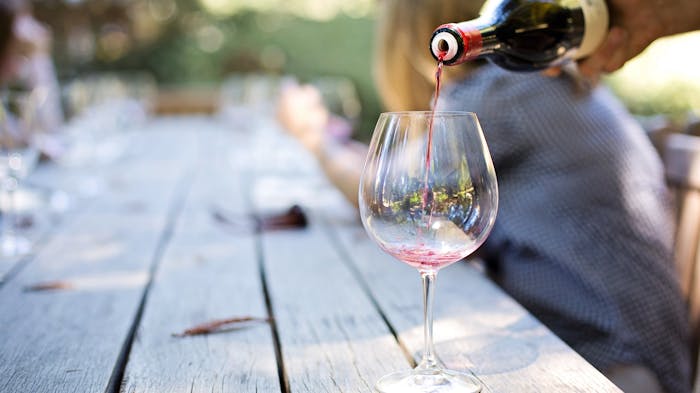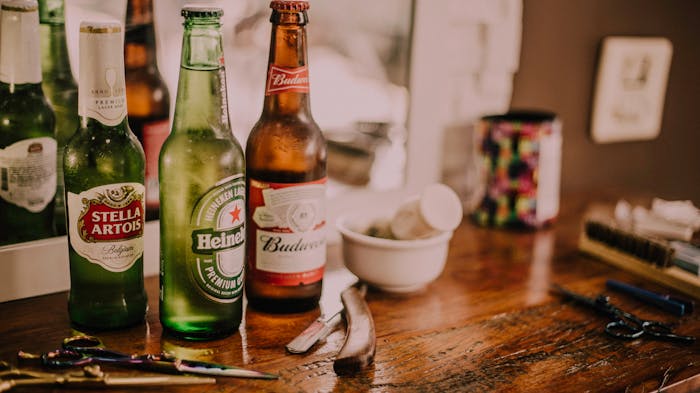Alcohol Abuse and Sexual Assault in College
College constitutes an important period of learning and development for young people, but it is also a time of considerable risk.
Two of these risks, alcohol abuse and sexual assault, can have lifelong impacts and are intrinsically linked.
Research points towards a key link between the misuse of alcohol and the prevalence of sexual assault. One study found that binge drinking demonstrated a strong association with sexual assault [1].
Not only is it important to identify the reasons why this connection exists between alcohol abuse and sexual assault, but also the reasons why these risks are more prevalent in college and how they can be prevented.
The connection between alcohol abuse and sexual assault

In order to prevent sexual assault, it is vital to understand its relationship with alcohol abuse.
Achieving this requires a dissection of the issue, focusing on a number of core elements that combine to establish this connection [2]:
1. The impacts of alcohol
When individuals consume alcohol, it triggers a range of effects that we associate with the state of being drunk.
A lack of inhibition, a decline in coordination, an inability to properly express thoughts and desires – the substance inhibits our usual behaviours.
For a perpetrator of sexual violence, alcohol has the effect of reducing their adherence to sexual boundaries.
The substance allows their urges to more easily direct behaviours, increasing the risk of them acting upon predatory and aggressive thoughts.
For a victim of sexual assault, alcohol reduces their ability to defend themselves.
Coordination, balance, effective communication – alcohol’s effects mean an individual is less equipped to fight off and escape a perpetrator of sexual assault.
Alcohol abuse also means that an individual is consuming these debilitating levels of alcohol on a regular basis. Therefore, they are more likely to commit or become a victim of sexual assault over time.
2. Alcohol does not cause sexual assault
As mentioned above, alcohol does not cause sexual assault. Someone who has no intentions whatsoever of committing the crime is not suddenly going to wish to simply as a result of consuming a lot of alcohol.
Instead, alcohol diminishes an individual’s resistance to committing the act, allowing their underlying desires to translate into behaviour.
In many cases, alcohol becomes a means through which perpetrators grant themselves permission to commit the act.
They consume alcohol to feel a lessened burden of consideration for social norms, allowing themselves to commit abuse.
When it comes to alcohol abuse, this excessive consumption may act as a means to commit sexual assault on a regular basis.
3. Alcohol does not make it easier to commit sexual assault
The point above may seem to indicate that it is easier to commit sexual assault when under the influence of alcohol, but this isn’t strictly the case.
While an individual’s inhibitions will be down, so too will their own coordination and cognitive ability.
As a result, a perpetrator under the influence of alcohol is much more dangerous as they are actively willing themselves to overcome the physical and mental limitations created by alcohol in order to coordinate themselves for a sexual attack.
Why is alcohol abuse likely to occur in college?

Once it is understood how alcohol abuse and sexual assault are connected, it is essential to shift attention to college and why sexual assault is so common there. In fact, students are three times more likely to experience sexual assault [3].
A key reason why sexual assault is such a problem at college is because of the prominence of alcohol and resulting alcohol abuse.
1. Party/drinking culture as a student
Going out, socialising, and having fun is a major part of college and student life. Young people look forward to the freedom and fun that going to university brings, but this period of partying also often relies upon excessive and frequent alcohol consumption.
This strong presence of alcohol increases general consumption and, as a result, reduces the inhibitions of young students.
These students, most often men, will behave with less care, consideration and respect, and those who have desires to commit sexual assault will be more likely to do so.
As stated above, this increased alcohol consumption does not cause greater levels of sexual assault, but makes those who are more likely or more willing to commit the crime less restrained.
The same levels of alcohol will also make victims, most often women, more vulnerable to attacks.
2. Peer pressure and fitting in
The existence of this college party culture will have a knock-on effect on how students and young people see their alcohol consumption. Pressures to fit in, make new friends, and appear cool will promote increased consumption.
In many cases, this peer pressure will lead students to drink more than they want to or have done so before. This means that not only are perpetrators more likely to experience a heightened feeling of recklessness, but victims are more at risk of being vulnerable.
3. The risk of spiked drinks and drug mixing
Spiked drinks are a major concern in colleges. Campaigns all across the UK recognise it as a key threat to young people [4], an important reason for this being that it puts young people at greater risk of being sexually assaulted.
If their drink is spiked, an individual can suffer a variety of consequences. They can have poor coordination, fall unconscious, or even die. They also become less able to identify and escape sexual assault, making them much more vulnerable.
Colleges can be particularly dangerous for drink spiking as perpetrators can target young people who might be less observant and therefore easier to victimise.
Students may also choose to use alcohol in tandem with other substances in order to achieve greater highs. This mixing can be dangerous and factor into the development of alcohol addictions.
The impacts of alcohol abuse and sexual assault
The impacts of both alcohol abuse and sexual assault can be immense, both in the short and long term. Both for the victim of sexual assault and the criminal perpetrating it, the effects can be life-changing.
1. The victim
For a victim of sexual assault, the trauma of the experience can affect long-term physical and mental health. Feelings of worthlessness and depression can combine with poorer self-care to reap negative effects for years.
If a victim also struggles with alcohol abuse, however, these effects can become cyclical and increasingly damaging. Abusing alcohol and falling victim to several sexual attacks can lower overall quality of life and trigger a spiral of negative experiences.
Such experiences may include loss of employment, homelessness, and long-term poor health.
2. The assaulter
For the individual committing sexual assault, the act can combine with alcohol overconsumption to trigger a cycle of dangerous and illegal behaviour.
Drinking a lot of alcohol can lead to an individual reducing their respect for sexual boundaries in the long-term, so much so that they begin to think they can commit these crimes even without alcohol.
If this happens, they become even more dangerous as they will no longer need to overcome the limitations of being inebriated.
How can sexual assault be prevented in college?
The risk of sexual assault in college is so considerable that there are a number of preventative measures that must be observed in order to help protect victims and obstruct perpetrators.
1. Spreading responsible drinking principles
Although being subjected to sexual assault is by no means a victim’s fault, young people can take steps towards protecting themselves from the risk. The most important area in which this care can be taken is with respect to their own alcohol consumption.
Throughout their college years, students should recognise their drinking limits, consume alcohol only with trusted friends, and look out for one another when drinking in public or with people they don’t know.
The chances of students adhering to these principles are greatly increased if universities invest in materials and campaigns that help entire student populations understand the ways they can be safe during their time at college.
2. Adopting a buddy system
The chances of an individual becoming a victim of sexual assault can be greatly reduced if students establish a buddy system with a close friend or peer.
This system sees two people agree to look out for one another during a party or night out, meaning each has another pair of eyes watching their behaviour and looking out for them.
A buddy system can not only help individuals monitor their alcohol consumption as to not consume enough to make them more vulnerable to sexual assault, but also to keep a watchful eye on any individuals who may pose a threat.
This system can also be applied to being observant of one another’s drinks. To prevent the risk of spiking, ensure your drink is being held by someone that can be trusted when you need to go to the toilet or go elsewhere.
3. Looking out for strangers
Following the same principle as the buddy system, students can massively reduce the risk of sexual assault if they also look out for those they don’t know.
This observation can take a number of forms. Students can ask those who seem overly intoxicated if they need assistance getting home, invite those who seem to be alone to join them for the rest of the evening, or remain close to someone who is unconscious.
4. Taking precautions when going out
If preparing to head out for the evening, students can take a number of steps to make sure their night is as safe as possible.
Prior to going out, they can look into where they are going, how they are going to get there, and (most importantly) how they plan to return home. This preparation provides a safety net which students can trust when they’re out having fun.
Once out, students can also take care when sharing their location with friends. By only informing desired friends via private channels, they can prevent unwanted and dangerous people being able to find and target them.
If plans fall through, students should only use transport options they trust. If using a taxi, Uber, or lift from a friend, this must be done with caution and never alone.
5. Taking precautions when staying in
If hosting a party or friends for some drinks, there are additional steps students can take to ensure they are safe when consuming alcohol in their halls or flat.
Students should only invite those that they trust, communicate where they live and how people can get there only via private channels, and ensure all doors and windows are locked when the fun is over.
How can alcohol abuse be reduced in college?

When discussing the ways in which sexual assault in college can be combatted, it is always worth exploring the ways in which alcohol abuse can also be reduced. Alcohol’s core role in sexual assault statistics means its reduction can have positive effects.
What can individuals do?
On an individual level, alcohol abuse can be reduced by taking a number of key actions which guide and promote healthy behaviours.
1. Monitoring alcohol consumption
By maintaining a vigilance regarding the frequency and quantity of alcohol intake, individuals can protect themselves from slipping into dangerous habits.
This can be most effectively done by keeping a log or diary to keep track of drinking.
This kind of observation can also be practiced on friends and peers. Keeping an eye on how often they are drinking can help when it comes to spotting and stopping the development of a drinking problem.
2. Speaking to people
If an individual notices that they are drinking more often than they would like to be, it’s integral that they open up to their family and friends about it.
Gaining another perspective on the situation can help identify the triggers responsible for the increased alcohol consumption – such as stress or loneliness – and steer an individual towards the right channels of support.
3. Looking after physical and mental health
The role of alcohol can be become so important in an individual’s life that they come to rely upon it for the good feelings which satisfactory physical and mental health would usually provide.
If an individual notices alcohol becoming a crutch, taking steps to boost physical – eating a more balanced diet and exercising – and mental health – speaking to friends and engaging in mindful activities – can help combat this dependence early.
4. Seeking the right support
When alcohol dependency looks to have taken a hold of an individual’s life, the best way to ensure abuse does not become a long-lasting and damaging condition is to seek the correct medical support.
Individuals who develop an addiction need to seek the support of alcohol rehab, within which they can access alcohol detox to attain physical sobriety and a variety of therapy treatments to combat triggers.
What can universities do?
Colleges and universities can also take steps to alleviate the burden of alcohol abuse on young people. These measures might include [5]:
- Executing campaigns which successfully communicate the risks of alcohol abuse and the principles of safe alcohol consumption
- Regulating on-campus drinking and ensuring there are sufficient support structures in place to help those who may be struggling with their alcohol consumption
- Targeting support towards first-year and younger students who may have less experience with drinking
- Providing alternatives such as alcohol-free social events and residences to protect those who don’t want to drink from being pressured into it
References
[1] https://pubmed.ncbi.nlm.nih.gov/22455186/
[2] https://www.butler.edu/well-being/counseling-services/alcohol-sexual-assault/
[4] Removed




